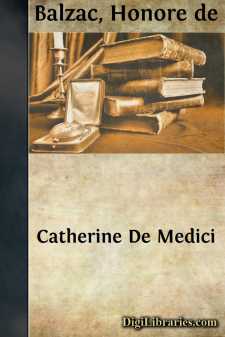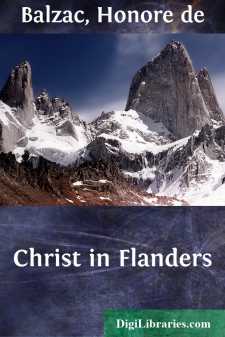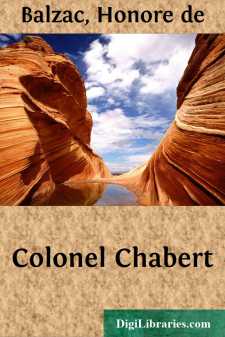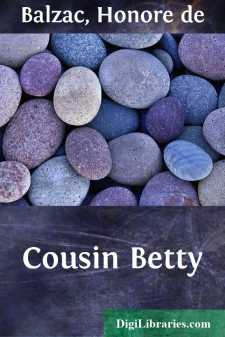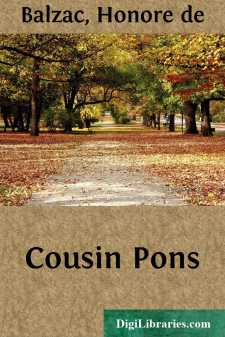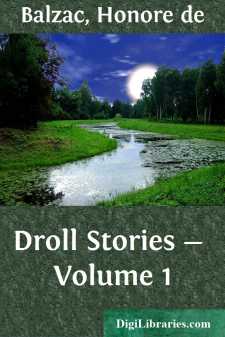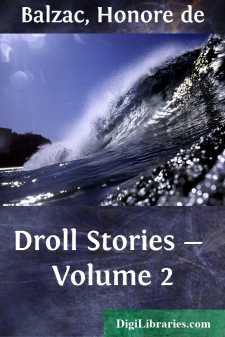Categories
- Antiques & Collectibles 13
- Architecture 36
- Art 48
- Bibles 22
- Biography & Autobiography 813
- Body, Mind & Spirit 142
- Business & Economics 28
- Children's Books 15
- Children's Fiction 12
- Computers 4
- Cooking 94
- Crafts & Hobbies 4
- Drama 346
- Education 46
- Family & Relationships 57
- Fiction 11829
- Games 19
- Gardening 17
- Health & Fitness 34
- History 1377
- House & Home 1
- Humor 147
- Juvenile Fiction 1873
- Juvenile Nonfiction 202
- Language Arts & Disciplines 88
- Law 16
- Literary Collections 686
- Literary Criticism 179
- Mathematics 13
- Medical 41
- Music 40
- Nature 179
- Non-Classifiable 1768
- Performing Arts 7
- Periodicals 1453
- Philosophy 64
- Photography 2
- Poetry 896
- Political Science 203
- Psychology 42
- Reference 154
- Religion 513
- Science 126
- Self-Help 84
- Social Science 81
- Sports & Recreation 34
- Study Aids 3
- Technology & Engineering 59
- Transportation 23
- Travel 463
- True Crime 29
Sort by:
by:
Honore de Balzac
INTRODUCTION There is a general cry of paradox when scholars, struck by some historical error, attempt to correct it; but, for whoever studies modern history to its depths, it is plain that historians are privileged liars, who lend their pen to popular beliefs precisely as the newspapers of the day, or most of them, express the opinions of their readers. Historical independence has shown itself much...
more...
by:
Honore de Balzac
CHRIST IN FLANDERS At a dimly remote period in the history of Brabant, communication between the Island of Cadzand and the Flemish coast was kept up by a boat which carried passengers from one shore to the other. Middelburg, the chief town in the island, destined to become so famous in the annals of Protestantism, at that time only numbered some two or three hundred hearths; and the prosperous town of...
more...
by:
Honore de Balzac
COLONEL CHABERT "HULLO! There is that old Box-coat again!" This exclamation was made by a lawyer's clerk of the class called in French offices a gutter-jumper—a messenger in fact—who at this moment was eating a piece of dry bread with a hearty appetite. He pulled off a morsel of crumb to make into a bullet, and fired it gleefully through the open pane of the window against which he was...
more...
by:
Honore de Balzac
COUSIN BETTY One day, about the middle of July 1838, one of the carriages, then lately introduced to Paris cabstands, and known as Milords, was driving down the Rue de l'Universite, conveying a stout man of middle height in the uniform of a captain of the National Guard. Among the Paris crowd, who are supposed to be so clever, there are some men who fancy themselves infinitely more attractive in...
more...
by:
Honore de Balzac
COUSIN PONS Towards three o'clock in the afternoon of one October day in the year 1844, a man of sixty or thereabouts, whom anybody might have credited with more than his actual age, was walking along the Boulevard des Italiens with his head bent down, as if he were tracking some one. There was a smug expression about the mouth—he looked like a merchant who has just done a good stroke of...
more...
by:
Honore de Balzac
THE FAIR IMPERIA The Archbishop of Bordeaux had added to his suite when going to the Council at Constance quite a good-looking little priest of Touraine whose ways and manner of speech was so charming that he passed for a son of La Soldee and the Governor. The Archbishop of Tours had willingly given him to his confrere for his journey to that town, because it was usual for archbishops to make each...
more...
by:
Honore de Balzac
TRANSLATORS PREFACE When, in March, 1832, the first volume of the now famous Contes Drolatiques was published by Gosselin of Paris, Balzac, in a short preface, written in the publisher's name, replied to those attacks which he anticipated certain critics would make upon his hardy experiment. He claimed for his book the protection of all those to whom literature was dear, because it was a work of...
more...
by:
Honore de Balzac
PROLOGUE Certain persons have reproached the Author for knowing no more about the language of the olden times than hares do of telling stories. Formerly these people would have been vilified, called cannibals, churls, and sycophants, and Gomorrah would have been hinted at as their natal place. But the Author consents to spare them the flowery epithets of ancient criticism; he contents himself with...
more...
by:
Honore de Balzac
PROLOGUE Certain persons have interrogated the author as to why there was such a demand for these tales that no year passes without his giving an instalment of them, and why he has lately taken to writing commas mixed up with bad syllables, at which the ladies publicly knit their brows, and have put to him other questions of a like character. The author declares that these treacherous words, cast like...
more...
by:
Honore de Balzac
I There are houses in certain provincial towns whose aspect inspires melancholy, akin to that called forth by sombre cloisters, dreary moorlands, or the desolation of ruins. Within these houses there is, perhaps, the silence of the cloister, the barrenness of moors, the skeleton of ruins; life and movement are so stagnant there that a stranger might think them uninhabited, were it not that he...
more...


